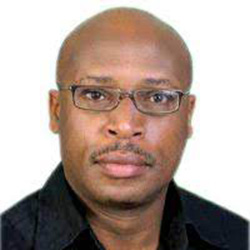THE GLOBAL interest that the African Development Bank meeting hosted in Kigali this week has received points to the importance of the event. It reminds the continent of its own potential, that it could be its own shepherd towards prosperity.


THE GLOBAL interest that the African Development Bank meeting hosted in Kigali this week has received points to the importance of the event.
It reminds the continent of its own potential, that it could be its own shepherd towards prosperity.
No doubt Africa has registered some growth, but only as one steps on the first rung of a ladder toward higher achievements.
As noted by the AfDB President, Dr Donald Kaberuka, during his rousing opening statement at the meeting, "There are many things we should do towards not simply growth, but transformation to consolidate our achievements, to minimise our vulnerability to exogenous shocks.”
The key word is transformation, of which I took some time to peruse some reports about the continent with a huge promise before it.
One of these reports was the 2014 African Transformation Report: Growth with depth.
In the play of words, suggested in the title, the thrust of the report is that if economies on the continent are to transform, they need growth with DEPTH—with the initials standing for Diversity; Exports; Productivity; Technology; and, Human well-being.
The report is premised on the notion that African economies need more than growth, of which they "need to Diversify their production, make their Exports competitive, increase the Productivity of farms, firms, and government offices, and upgrade the Technology they use throughout the economy—all to improve Human well-being.”
The report notes that economic transformation is now the consensus paradigm for Africa’s development.
This can be seen, it says, in the African Union’s Vision 2063 which calls for integrating the continent’s economies so that they partake more in the global economy and in regional opportunities.
It will be recalled that during the celebration of the Golden Jubilee of the establishment of the Organisation of African Unity (now African Union) in Addis Ababa in May 2013, AU Heads of State and Government made the Solemn Declaration to make the next 50 years count for the continent in what they dubbed AU Agenda 2063 (i.e., 2013 plus 50 years).
The objective of the AU Agenda 2063 is to chart a development trajectory for Africa for the next 50 years, to make the continent "a prosperous, peaceful, and united continent that assumes its rightful place in the global community of nations.”
There’s every reason to be optimistic. It is projected that by 2050 Sub-Saharan Africa will have a larger and younger workforce than China or India.
The 2014 African Transformation Report observes that with the continent’s abundant land and natural resources, that younger workforce can be a global competitive advantage and a great asset in driving economic transformation.
On this it elaborates on four pathways to transforming African economies, namely, labour-intensive manufacturing; agroprocessing; oil, gas, and minerals; and, tourism.
In the meantime, the Africa Progress Report 2014 observes how, despite some challenges, economic growth has taken root across much of the continent, where "exports are booming, foreign investment is on the rise and dependence on aid is declining.”
The Progress Report, however, cautions that Governments urgently need to make sure that economic growth doesn’t just create wealth for some, but improves wellbeing for the majority.
This is stating the obvious, as the report also "calls for more effective protection, management and mobilization of the continent’s vast ocean and forest resources”, needed to support transformative growth.
The AfDB meeting was an important spur towards realizing the transformative growth and our unity as a continent doing more business with itself.
In the words of Dr. Kaberuka, looking forward to "the day of an African passport”, [t]his is not a sentimental issue of our Africanness; it is about deepening Africa’s domestic market, which is the indispensable platform for stronger economic growth and prosperity.
The writer is a commentator on local and regional issues
Twitter: @gituram


